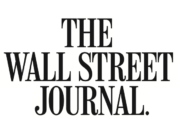This piece originally appeared in National Review on November 21, 2020.
You may think the Bill of Rights safeguards our liberties from the whims of public opinion. After all, as Justice Robert Jackson observed in the 1943 case of West Virginia State Board of Education v. Barnette, “[t]he very purpose of a Bill of Rights was to withdraw certain subjects from the vicissitudes of political controversy, to place them beyond the reach of majorities and officials, and to establish them as legal principles to be applied by the courts.”
Well, you’d be wrong, as we’re reminded by David M. Primo and Jeffrey D. Milyo’s latest work, Campaign Finance and American Democracy: What the Public Really Thinks and Why It Matters. In this welcome addition to the discourse on the country’s campaign-finance system, the authors’ research illustrates the ways in which public opinion, often misinformed, has served as a basis for courts to bless the restriction of First Amendment liberties.
The Constitution says: “Congress shall make no law . . . abridging the freedom of speech.” Yet the Supreme Court carved out an exception, allowing such a law if it deters the “appearance of corruption spawned by the real or imagined coercive influence of large financial contributions.” That exception comes from Buckley v. Valeo, the landmark 1976 case in which the Supreme Court struck down key provisions in the Federal Election Campaign Act while upholding others, including contribution limits.
Thus, the extent to which the First Amendment protects Americans’ ability to speak out about politics — whether publicly or privately; whether singly, in groups, or through the corporate form — is limited by the Court’s deference to people’s views about campaign finance and American democracy.
Primo and Milyo, distinguished professors of political science and economics, respectively, have conducted what they rightly call a “relentlessly empirical” investigation of that public opinion. (Primo and Milyo are unpaid academic advisers of my employer, the Institute for Free Speech, but the IFS was not involved with this book.)
The book is straightforward — even blunt — and data-driven, enlightening readers about the public’s views on corruption, campaigns, and money in politics. By avoiding the manifesto-style rhetoric that such books often employ, Primo and Milyo have not only taken the temperature of the public but cooled down a debate where there is often more heat than light.
It turns out that Americans “do about as well in answering questions about campaign-finance law as a blindfolded monkey throwing darts at possible answers.” While that finding may be as shocking as Captain Renault’s discovering gambling in Rick’s Café, it is nevertheless alarming to learn just how misinformed the public is about this body of law, particularly as courts rely on public opinion to justify restrictions on core First Amendment rights.
Americans’ attitudes toward political expression change based on how it is described. They approve of political activity framed as “speech,” but they disapprove of the money that funds said speech. No doubt this discrepancy accounts for the common assertion that “money isn’t speech.” Even more “shocking”: Primo and Milyo’s survey of campaign-finance experts in the academy reveals that they largely self-identify as liberal Democrats and believe that campaign-finance laws will work.
Other findings simply baffle. Over 20 percent of Americans believe an officeholder is acting corruptly when he takes an unpopular policy stand because “it is morally right” or “in the best interest of the country.” It’s unclear if this means one-fifth of Americans are majoritarians or just nihilistic.
Still other results can only be described as disheartening. Americans are willing to sacrifice the speech rights of those they disagree with, and they think political activity is corrupting if done by an ideological opponent but not when the identical activity is done by an ally. Likewise, Americans generally support donor-disclosure requirements, but that support dramatically falls when they are asked if their own donations should be public.
In a particularly troubling finding, the authors report: “No matter how we slice the data, we find a remarkably robust relationship: support for campaign-finance restrictions is increasing in the belief that these laws are used by government officials to harass political opponents.” That is to say, there’s an unmistakable correlation between a person’s support for campaign-finance reform and her belief that such laws are used for retribution. Primo and Milyo pose the inevitable question: “Is it because, deep down, Americans are OK with using regulations to go after opponents?”
Another of the authors’ findings is perhaps an illustration of this fear of abuse: The Federal Election Commission’s requirement that donors report their address and employer information is incredibly unpopular. Just 8.1 percent of Americans approve of required disclosures of home address.
Primo and Milyo’s showstopper finding, however, based on a meticulous analysis of survey data over 30 years and in all 50 states, is that “there is no scientific evidence that campaign-finance reforms actually increase public trust in government.” Having conducted “the largest and most comprehensive scientific study of the question to date,” they found that “campaign finance reforms do not increase public trust and confidence in government in any meaningful way.”
In other words, campaign-finance laws do not reduce the “appearance of corruption,” the very concern stated in Buckley 44 years ago. More research is needed to confirm and expand on this finding, and in fact Primo and Milyo alert the reader that they are already on it. But for now, this book strongly suggests that the basis for over four decades of Supreme Court rulings on campaign-finance laws is fatally flawed.
Primo and Milyo appear to have found that, at least when it comes to our bloated and complicated political-speech laws, some Americans are confused, cynical, and, perhaps because of their confusion, willing to trade away the rights of others. And there is no upside: The promise of reforms ushering in a more trustworthy government is a false one.
Perhaps we should pay renewed attention to the words of Justice Jackson.














